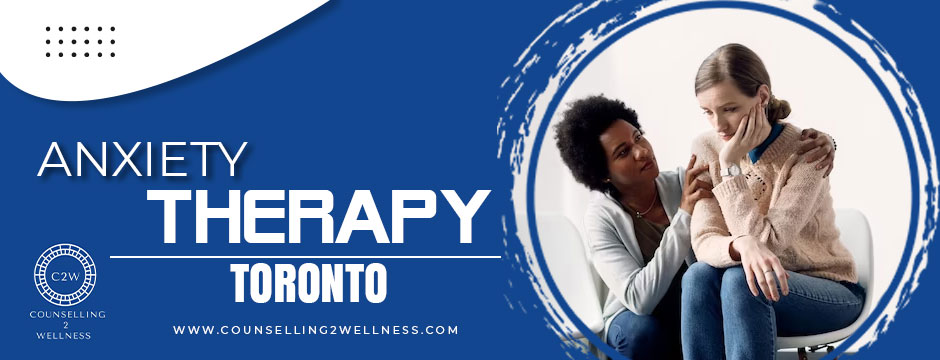Social anxiety is a common mental health condition that can significantly impact a person’s quality of life. It is characterized by an intense fear of social situations, leading to avoidance, discomfort, and distress. However, there are effective strategies and therapeutic approaches available to help individuals overcome social anxiety and regain confidence in social interactions. In this blog, we will explore some of these anxiety therapy strategies and therapeutic approaches that can facilitate the journey towards overcoming social anxiety.
Social anxiety, also known as social phobia, is an anxiety disorder characterized by an excessive fear of being judged, embarrassed, or humiliated in social situations. People with social anxiety often experience physical symptoms such as rapid heartbeat, sweating, trembling, and difficulty speaking. It is important to differentiate social anxiety from shyness or introversion, as social anxiety is a diagnosable mental health condition that can significantly impact daily life.
-
Cognitive-Behavioral Therapy (CBT)
Cognitive-behavioral therapy is a highly effective treatment for social anxiety. It focuses on identifying and challenging negative thoughts and beliefs that contribute to anxiety. Through CBT, individuals learn to recognize and reframe distorted thinking patterns, replacing them with more realistic and positive thoughts. Exposure therapy, a key component of CBT, involves gradually exposing individuals to feared social situations in a controlled and supportive environment, helping them build resilience and reduce anxiety.
-
Mindfulness-Based Approaches
Mindfulness-based approaches on anxiety therapy can be beneficial in managing social anxiety. Mindfulness involves cultivating present-moment awareness and non-judgmental acceptance of one’s thoughts, emotions, and bodily sensations. By practicing mindfulness, individuals with social anxiety can learn to observe their anxious thoughts and physical sensations without reacting to them. Mindful breathing and relaxation exercises can help reduce anxiety symptoms and promote a sense of calmness in social situations. Programs such as Mindfulness-Based Stress Reduction (MBSR) have shown effectiveness in treating social anxiety.
-
Support Groups and Peer Support
Building a support system is crucial in overcoming social anxiety. Joining support groups or therapy groups specifically designed for individuals with social anxiety can provide a safe space to share experiences, gain insights, and practice social skills in a supportive environment. Interacting with others facing similar challenges can help individuals realize they are not alone in their struggles and learn from one another. Online communities and forums also offer opportunities for connecting with others and receiving support.

-
Medication and Medical Approaches
In some cases, medication may be considered as part of the treatment plan for social anxiety. Selective serotonin reuptake inhibitors (SSRIs) are commonly prescribed to alleviate anxiety symptoms. These medications work by increasing the availability of serotonin, a neurotransmitter that plays a role in mood regulation. It is important to work closely with a healthcare professional to determine the most suitable medication options and to monitor their effectiveness and potential side effects.
-
Lifestyle Changes and Self-Care
Certain lifestyle factors can impact social anxiety. Engaging in regular exercise has been shown to reduce anxiety and improve overall well-being. Exercise releases endorphins, which are natural mood elevators. Developing healthy sleep habits is also important, as lack of sleep can exacerbate anxiety symptoms. Managing stress through anxiety therapy in Toronto, relaxation techniques, hobbies, and self-care activities can contribute to overall well-being and help individuals cope with social anxiety.
-
Gradual Exposure and Social Skills Practice
Gradual exposure to feared social situations is a key strategy in overcoming social anxiety. Setting achievable goals and celebrating small victories along the way can boost confidence and reduce anxiety. Role-playing and practicing social skills in a safe environment, such as with a trusted friend or a therapist, can help individuals develop effective communication strategies and build social confidence. Seeking opportunities for social engagement and gradually expanding comfort zones can also contribute to overcoming social anxiety.
-
Professional Help and Seeking Therapy
Recognizing the need for professional assistance is an important step towards overcoming social anxiety. Finding a qualified therapist experienced in treating social anxiety can provide individuals with the necessary tools and support. Individual therapy allows for personalized treatment plans tailored to specific needs, while group therapy provides opportunities for peer support and social skills practice. Therapeutic modalities such as psychodynamic therapy or acceptance and commitment therapy (ACT) may also be effective in addressing underlying issues and promoting behavioral change.
Conclusion
Overcoming social anxiety is a journey that requires patience, commitment, and support. By implementing strategies such as cognitive-behavioral anxiety therapy, mindfulness-based approaches, support groups, medication when necessary, and making positive lifestyle changes, individuals can make significant progress in managing and ultimately overcoming social anxiety. Remember, seeking professional help is a crucial step towards gaining the necessary tools and support to navigate social situations with confidence and ease. With time, perseverance, and the right therapeutic approaches, it is possible to overcome social anxiety and embrace a fulfilling social life.
Want to find out more? Visit us at Counselling 2 Wellness!

